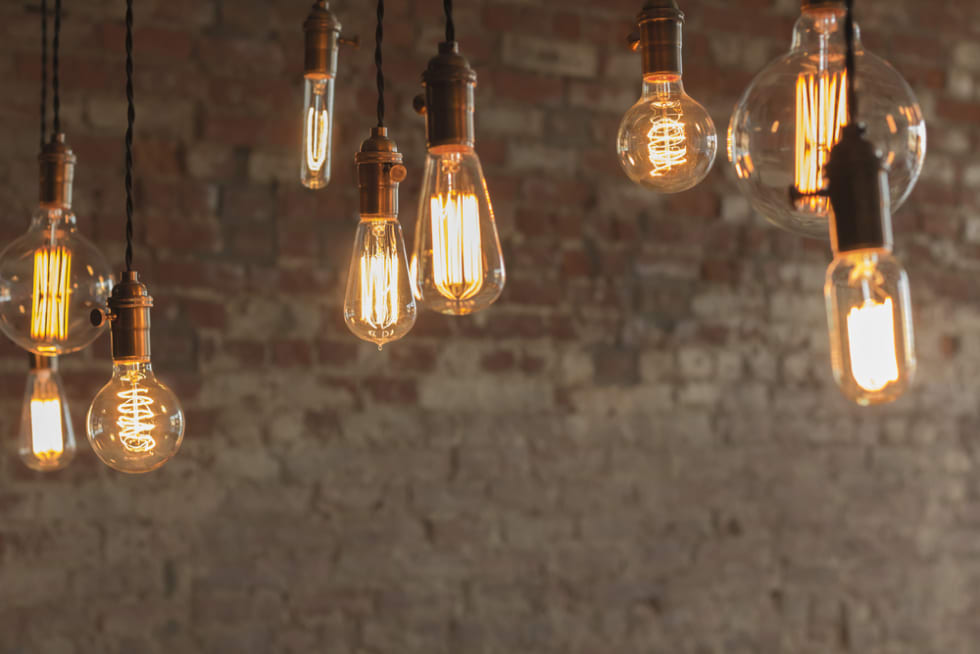Who Should Pay for Utilities? Landlords vs. Tenants

Before you finalize your next lease with a new tenant, it's time to step back and consider the big question on apartment utilities. There's no right or wrong answer to whether or not landlords or tenants should pay for utilities, which can make it challenging to choose.
Need some help narrowing down your choices? We weighed out the pros and cons of each situation to help you make the best decision for your rental property.
What Utilities are Commonly Included in Rent?
It's common for landlords to include basic utilities in the rent, including water, sewage, and garbage. After all, landlords should service common areas with utilities to make them desirable amenities for renters.
Some apartments also include the basics, plus electricity and gas as part of the rent. Renters usually prefer some utilities included in their lease agreement. It gives them more control over their budget and could mean they are choosing a more expensive rental if they’re confident in paying one flat fee each month.
Apartments with utilities included are often highly desirable for tenants looking for more clarification in their budget and monthly expenses.
What Utilities are Commonly Not Included in Rent?
Beyond the basics, renters are usually responsible for paying for anything else. For example, if a renter wants cable, phone, and Internet, they need to set up those utilities themselves.
How to Decide Who Pays Which Utilities?
Deciding who pays for utilities depends on your apartment building set-up, how much you prioritize convenience and the standard practice in your rental market. If all of the big apartment complexes around you include rent, it may be challenging to compete for tenants.
In some situations, a landlord may set up the units so that they can easily pay for all of the utilities. For example, suppose you're renting out an apartment to tenants in an older home with several units. It may simplify the process for the landlord to pay all of the utilities at once instead of trying to set up multiple electric, gas, and water accounts and access in each unit.
Read more about which utilities landlords and tenants pay.
Laws About Utilities in Apartments
Your state might have specific laws on providing safe and habitable dwellings for tenants and how those laws apply to apartments. These laws are often referred to as an implied warranty, and your state may require that landlords pay for basic utilities.
The utilities account holder is legally responsible for paying the related bills. If the lease outlines that tenants should pay for all utilities, the renter needs to set up the associated accounts. This way, if the tenant fails to pay their electric bill, the power company will address it with them directly.
Although landlords aren't necessarily required to pay for utilities, they must legally provide access to utilities. Landlords also need to outline who pays for utilities in the lease and any special provisions. For example, some landlords ask renters to leave their utilities on for a few days after their lease ends to show the apartment. A landlord must outline this type of request in the lease in advance. Otherwise, the tenant has no obligation to continue paying for the utilities once their lease ends.
Depending on the location of your apartment, your tenant may be able to withhold rent when utilities are not working correctly for a specific period of time. If you can't get your hot water heat or boiler fixed, you may be liable for legal action.
There are also issues with utilities and evictions and require checking your local ordinances carefully. In most situations, landlords and property managers cannot intentionally turn off utilities like running water, hot water, power, or gas to force a renter to leave. Even if the landlord doesn't pay for those utilities, they cannot restrict access. In other cases, a landlord cannot turn off utilities while tenants are going through an eviction.

Pros and Cons of Tenant vs. Landlord Paying Utilities
Now that you have an overview of how utilities work between landlords and tenants, here are some pros and cons to each.
Pros of Tenants Paying Utilities
It’s hard to know whether or not tenants are going to drive up utility bills. Landlords requiring tenants to pay utilities are off the hook for any unexpected costs. If the tenant loves a hot apartment during winter and ice-cold during summer, the landlord won't end up paying for the influx of power.
Landlords can also cut down on paperwork and save time when tenants are dealing directly with utility companies themselves.
Pros of Landlords Paying All Utilities
Turning over utility responsibilities to tenants may sound desirable, but there are some pros to handling it yourself. Renters often view apartments where all utilities are included as more desirable than those without. Even if the rent is higher, renters have more peace of mind knowing exactly what their costs are each month with no surprises.
Landlords can also make more rental income with utilities included. Logically, a landlord needs to charge more rent if all utilities are included to cover any surprises. If you end up with a tenant who isn't around much or dips below the average utility bill, you may make more profit for your rental business.
Utilities are also tax-deductible, meaning if you pay for them with your credit card, you may end up earning reward points or other perks.
Cons of Tenants Paying Utilities
Now that we've explored a few of the pros of tenants paying utilities, here are some cons to consider.
One of the biggest downsides to requiring tenants to pay utilities is reliability. Not all renters are financially responsible or organized. They could end up with service interruptions during the winter months, and no heat could mean burst pipes or other issues.
Tenants that slip behind on bills are less likely to pay rent in order to keep their electricity on. When everything is included, landlords have peace of mind they'll receive one streamlined payment.
Even if a tenant is responsible for paying utilities, the landlord may be on the hook if they move out and fail to pay their debt. Landlords may be able to keep the tenant’s security deposit to allocate towards unpaid utilities, though it depends on local laws and why the utilities weren’t paid.
Cons of Landlords Paying All Utilities
If you live in a climate with extreme weather, you may end up with surprise power and gas bills. When you include all utilities, tenants may be less likely to conserve resources. They may even leave their heat or air blasting while out of town for the weekend.
There's also the issue of failing to pay rent. If a tenant can't or refuses to pay rent, landlords are still on the hook for the included utilities. As the account holder, the utility companies will come after you for related payments.
State laws and local ordinances may require you to set the heat in an apartment to a specific temperature. However, if you rent out multiple units in a home or duplex, it can be challenging to maintain a comfortable temperature for everyone. Tenants on the ground floor may complain about being too cold, while renters on the top floor may feel the stifling temperatures as heat rises through the building.
Should You Include Utilities in Your Lease?
Including utilities in your lease can simplify the rental process and attract tenants who are comfortable paying more for the convenience. However, landlords who cover all of the costs of utilities can leave themselves liable for rising expenses and tenants who waste resources and drive up bills.
Weigh the pros and cons to determine what’s right for your rental business. Or offer basic utilities like water, electricity, garbage, sewage, and gas and leave additional bills up to your tenants.
Share this Article



